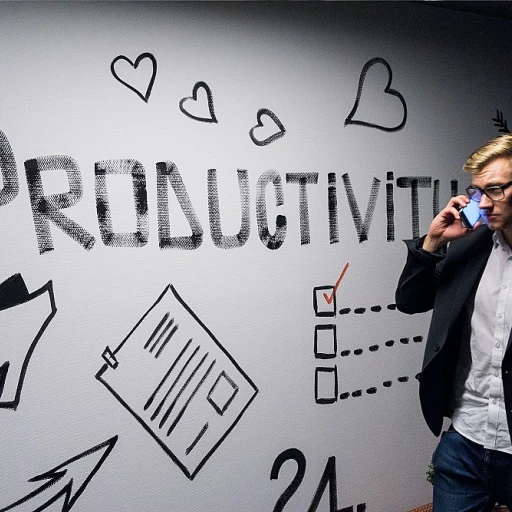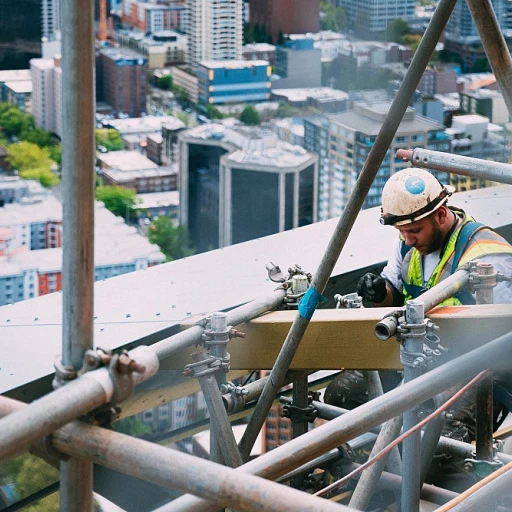
Understanding the Role of a Salesforce Architect
Exploring the Role and Responsibilities
The position of a Salesforce Architect is a coveted one, playing a vital role in designing and implementing effective Salesforce solutions. This role demands a deep understanding of the Salesforce platform, including the various systems and integrations it supports. A Salesforce Architect is responsible for ensuring data integrity, security, and high performance within the platform's ecosystem.
To excel in this role, you should approach designing with a strategic mindset, considering not only current needs but also anticipating potential future requirements. This includes planning for scalability, customizing solutions to meet specific business demands, and using best practices to optimize Salesforce data management.
As the landscape of Salesforce evolves with innovations like Lightning components and big objects, the architect must stay abreast of the latest updates and enhancements. Additionally, a thorough understanding of governor limits and error handling procedures is crucial to maintaining system stability and performance.
An approach that synthesizes technical expertise with robust problem-solving skills is essential for success. You will often face complex questions during the architect interview process, so it is vital to have an in-depth knowledge of real-term solutions and examples in your arsenal.
For a comprehensive preparation, consider exploring mastering essential interview skills to navigate the demanding Salesforce Architect interview process effectively.
Common Salesforce Architect Interview Questions
Exploring Key Themes and Topics
In the architect interview process, being acquainted with common questions can greatly enhance your preparation. When preparing for your salesforce architect interview, it’s crucial to anticipate the type of questions you might face. These often revolve around understanding your technical expertise, problem-solving skills, and how well you can design and implement solutions using the Salesforce platform.
Technical Questions Across Key Areas
- Design and Integration: You might encounter questions about your approach to designing a salesforce solution. Expect to be asked how you would address a specific integration challenge or ensure smooth user experience with lightning components. Consider using past experiences as examples when explaining your methods.
- Data Management: Assessing how you maintain and ensure data integrity, as well as your experience with data migration, will likely come up. Interviewers may probe into your understanding of salesforce data models and how you would handle data-related errors or manage big objects while maintaining system performance.
- Security and System Improvements: It's crucial to demonstrate your knowledge of safeguarding salesforce systems. You may face questions on methods to ensure data privacy and security within the platform, as well as how to address any security breaches quickly and effectively.
- Performance Optimization: Be prepared to discuss how you would improve system performance. Interviewers might inquire about managing governor limits and real-time processing. Presenting a logical, clear process for troubleshooting and error handling could be advantageous.
Real-life Scenarios to Test Your Skills
Behavioral and situational questions frequently mimic real-life scenarios encountered by a salesforce architect. Anticipate questions that will require you to use a structured response approach. For instance, you might be asked to illustrate a time when you had to meet complex technical requirements under tight deadlines or explain your strategy for a successful data migration project.
Providing comprehensive and thought-out responses will demonstrate your readiness to handle the role and signal your understanding of best practices. Preparing extensive example answers in advance can alleviate the pressure and spotlight your competencies succinctly during the interview process.
Technical Skills Assessment
Evaluating Technical Skills in Salesforce Architecture
To excel in a Salesforce Architect interview, demonstrating a deep understanding of technical skills required for the role is essential. This involves showcasing your proficiency in designing, implementing, and maintaining robust Salesforce solutions, which ensures data integrity and system performance.- Salesforce Platform Expertise: Highlight your experience with the Salesforce platform, emphasizing your ability to utilize tools such as lightning components, big objects, and governor limits to optimize system performance. Explain your approach to designing solutions that are both efficient and scalable.
- Integration and Data Migration: Be prepared to discuss your experience with Salesforce data integration and data migration strategies. Illustrate how you handle data migration processes while ensuring data security and accuracy. A good example answer might detail how you managed a large-scale data migration project, utilizing best practices to minimize errors and maintain system integrity.
- Handling Errors and Ensuring System Stability: Explain your approach to error handling in Salesforce solutions. Discuss strategies you employ to ensure system stability and the seamless operation of user experiences. This can include discussing real-time monitoring and performance tuning.
- Security and Compliance in System Design: Security is a top priority in any Salesforce solution. Describe how you ensure data security and compliance with industry standards. Provide examples of how you've implemented security measures to protect sensitive Salesforce data.
Behavioral and Situational Questions
Behavioral and Situational Queries
When preparing for the Salesforce Architect interview, it's crucial to expect behavioral and situational questions. These types of questions are designed to assess not only your technical prowess but also your problem-solving approach and how you handle various scenarios in a Salesforce environment. Behavioral questions often delve into your past experiences to predict future performance. You might be asked to explain concept-related challenges you faced during the integration of systems or how you ensured data integrity when designing a Salesforce solution. Prepare by reflecting on specific instances where you successfully navigated Salesforce platform requirements. To answer situational questions effectively, it's helpful to use the STAR method (Situation, Task, Action, Result). Suppose you're asked to describe how you enhanced system performance under governor limits. You might outline a situation where real-time data migration was involved, discuss the tasks you undertook to integrate lightning components efficiently, explain your custom approach, and describe the positive outcome in terms of user satisfaction and data accuracy. Your responses should demonstrate your ability to maintain security while designing and implementing Salesforce solutions. Whether it's handling big objects or dealing with error handling in data models, ensure your answers are concise yet comprehensive, showcasing your expertise and experience as a Salesforce architect.Preparing for a Successful Interview
Effective Strategies for Interview Preparation
Preparing for a Salesforce Architect interview requires a strategic approach that combines technical knowledge with strong communication skills. Here are several key aspects to consider:- Review and Understand Common Architect Questions: Familiarize yourself with typical Salesforce architect interview questions. You should be able to discuss Salesforce data integration, governor limits, and error handling in depth. Practice explaining concepts like data migration and the use of big objects.
- Demonstrate Your Technical Expertise: Showcase your understanding of the Salesforce platform, including lightning components and system security. Be prepared to discuss your approach to designing custom solutions that align with user requirements and improve system performance.
- Articulate Your Experience with Real-Time Challenges: Share examples of real-time challenges you've encountered in previous roles. For instance, discuss how you ensured data integrity when integrating systems or how you managed data model complexities.
- Address Behavioral and Situational Scenarios: Expect questions that test your problem-solving and decision-making skills. Prepare to answer how you handle specific scenarios, such as designing a Salesforce solution while keeping security and data performance in mind.
- Customize Your Portfolio and Resume: Tailor your portfolio to highlight your architect experience, focusing on designing and implementing Salesforce solutions. Showcase your commitment to best practices in the process of ensuring data accuracy and user satisfaction.













